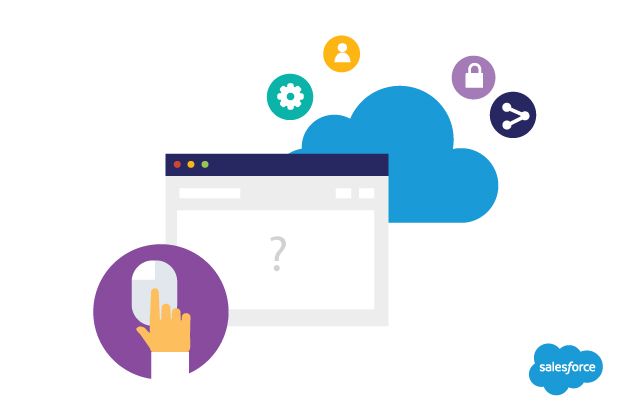Finding the Customer Service Software That’s Best for You

No two people are exactly alike. That goes for companies: Even if you’re selling the same thing as the office across the street, you’re likely different in setup, background history, ownership, and employees. So if all those things are unique, why then shouldn’t the tools you use to respond to your customers be unique, too? Choosing the right customer service software is essential in today’s world.
In fact, individualized customer service software is already helping business people respond to their clients with more personalized results. That software works best when there are the in-workplace tools to demonstrate to employees how to maximize its functionality. In addition, unique customer service software can be a useful ally in recognizing and responding to trends in return on investment—what campaigns worked, what caused confusion, and what can be adapted in the future.
There’s always more to learn about customer service and how to improve it. This article helps you get started, with insights on where software for this essential business topic is headed.
For a long time, “customer service” meant calling a phone number at inconvenient hours, listening to hold music for what seemed like an eternity, and finally slamming the phone down and giving up in frustration. Fortunately, that no longer has to be the case. With the advent of the information age and email, customers could send in service requests without having to wait for the customer service lines to be open. Eventually, companies started developing software solutions to route phone calls, allow customers to open tickets online, and implement automation that prioritized and escalated those tickets. This also allowed customers access to customer service 24 hours a day, 7 days a week.
Finding the Customer Service Software That’s Best for You
Over the years, customer service software has witnessed significant change and growth. This is hardly surprising: After all, 33 percent of high-performing service teams qualify as heavy tech adopters. That means even software that’s become standard in the business world is seeing significant improvement, as technology allows for more features and functions to be implemented. However, customer service software updates are now going further than mere features. Help desk software is increasingly becoming multi channel, making the process of responding to and flagging Facebook posts and Twitter mentions as important as providing direct support via telephone or email.
There are many available customer service solutions on the marketplace, and every year developers continue adding capabilities and features to broaden their product feature matrix. A number of leading vendors are giving heavy focus to automation, with the goal of simplifying the handling process of support tickets. Still others are busy building major analytics products which are assisting businesses identify and cut down bottlenecks in their customer support processes.
It’s essential that you look beyond just the tool features when selecting a customer service software solution. Check customer service software reviews on factors like usability, architecture and affordability. You may also want to consider particulars regarding the vendor company itself: Its commitment, viability, reach, and post-sales support levels. After all, if they can’t handle their own customer service well, should you really trust them with yours?
Customer Service Software to Fit your Specific Needs
Quality and exceptional customer service is critical for the success of your business. Many small companies informally manage customer support through email and other conventional business productivity tools designed to help field requests and share support responsibilities between teams. However, as organizations grow, it becomes more important to streamline customer support operations.
This is where a good customer service app becomes essential. Without efficient software to assist in managing growing customer demands, your service teams will be working without the appropriate information. This is inefficient, and often produces less-than-satisfactory results. Therefore, customer service apps become a must-have for customer support teams.
Perhaps the most critical step to finding a software solution that fits your needs is establishing and setting company goals. From there, decide what customer service means to your company and what objectives you’re expecting that system to achieve.
Software to Serve Small Vs. Large Business
Whether you want a simple customer service software designed for small businesses, or a more robust solution for larger ones, there’s suitable software for you. The truth is that whether you’re a small, medium, or Fortune 500 business, customer service software has the potential to make a major difference.
Small businesses may not expect many customer service calls, However, chances are that their resources to handle such calls are limited, and when those inevitable calls do come in (and they will), it’s crucial to meet the customer’s needs as efficiently and satisfactorily as possible. A customer service software implementation can allow a client to access the answers to their questions quickly, at their leisure.
Larger companies, on the other hand, have a higher volume of customer service needs. Putting a good customer service software solution in place can help to prioritize service tickets, escalate them automatically as needed, provide customer service agents with easy access to the company’s knowledge base as they respond to customer requests, and analyze customer service tickets to provide valuable insight.
No matter your size, what’s important is that you study customer service software reviews and select a system that’s appropriate for your specific needs—one which streamlines your processes and doesn’t make matters more complicated.

High performers are 2.5x more likely than moderate performers to be heavy tech adopters
Customer Service Software Cost and Use Considerations
When evaluating software, price will no doubt be an important factor. The analysis instead ought to focus on a lot more than the simple, upfront costs. The majority of packages provide per-user prices, but it’s wise to confirm what elements are factors in those prices. For example, training could consume a big chunk of your budget, as could ongoing support and needed upgrades.
While browsing, also look closely at the business processes at your organization. Engage your staff on what they want and need and compare the software against your company’s bottom line. Then, you’ll have a fair picture of the most suitable customer service software required. Because you know what your workers need, ensure the vendor or providers complete on-site implementation support. Verify what level of training is offered and the kind of user documentation provided to users.
Customer Service Software Commitment
Given that high performers are 2.5 times as likely as moderate performers to be heavy tech adopters, there’s little doubt that the right software solution can have a dramatically positive impact on business success. The right customer service software has the potential to dramatically improving the productivity of your team, heighten customer satisfaction and boost sales.
However, merely adopting and putting into place a customer service software solution may not be sufficient to bring you the desired results. There must be a commitment to applying and effectively using the system. Before it’s introduced, all relevant departments must be involved and engaged in its adoption.
Keeping an eye on ROI
Depending on the customer service software you select, it’s possible to establish and measure your sales goals and keep tabs on email marketing campaigns. You can also keep a sharp eye on what comments are being made on social media by customers and prospects. In the end, this is what impacts your return-on-investment.
In today’s competitive global business environment, choosing the most suitable help desk software for managing your customer interactions could be the most crucial business decisions you’re ever going to make. Through a logical and needs-driven decision-making process, the team you have can comprehensively prioritize real needs, objectively evaluate available products, and then commit to the customer service app that serves your customers and company best.



